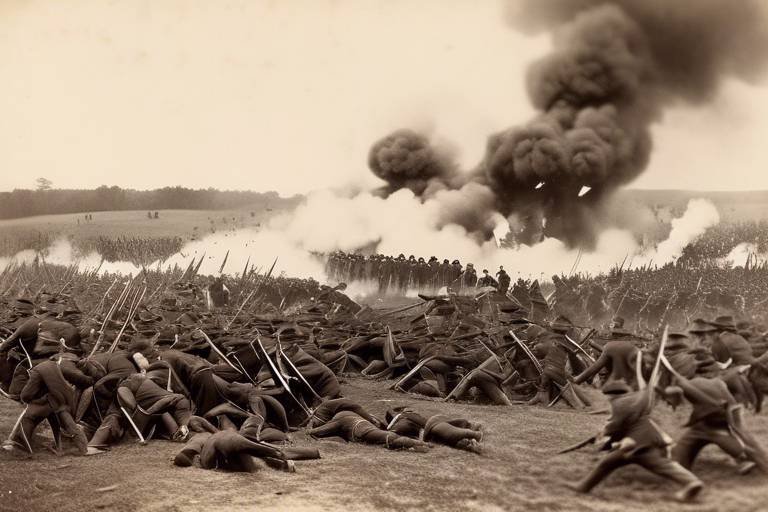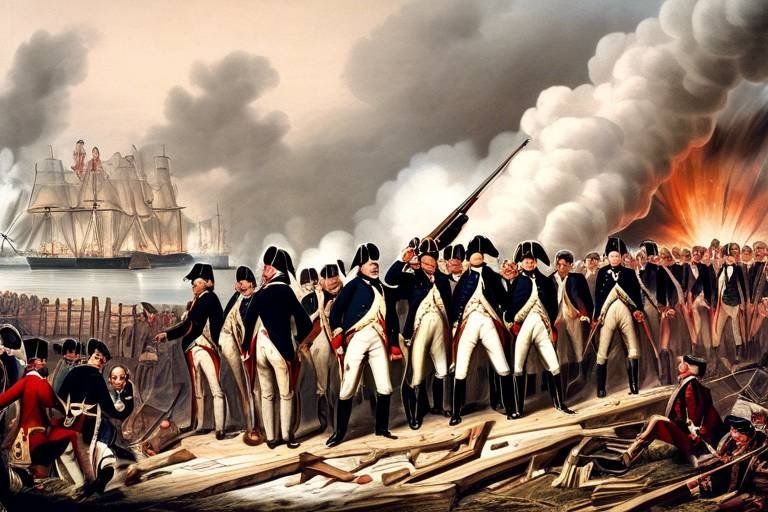The Importance of the Roman Forum in Ancient Society
The Roman Forum holds immense importance in ancient society, serving as a multifaceted hub that played a pivotal role in the political, social, and economic realms of ancient Rome. This iconic site was not just a physical space but a symbol of Roman civilization's power and grandeur, encapsulating the essence of Roman life and governance.
Historically, the Roman Forum has deep roots that date back to the early days of Rome. Initially functioning as a marketplace, it gradually evolved into the beating heart of Roman life and politics, witnessing significant transformations that mirrored the changing dynamics of the Roman Empire.
Architecturally, the Roman Forum stands as a testament to Roman engineering and design prowess, boasting magnificent structures like the Temple of Saturn, the Basilica Julia, and the Arch of Septimius Severus. These architectural marvels not only showcased the Romans' advanced building techniques but also served as iconic landmarks within the city.
As the political center of ancient Rome, the Roman Forum was where crucial decisions were made, elections were conducted, and influential figures like Julius Caesar and Cicero delivered powerful speeches that shaped the course of Roman history. It was a place where political power and public discourse intersected, defining the governance of the Roman Republic.
Religiously, the Roman Forum was a sacred space dotted with temples dedicated to various deities, where rituals, sacrifices, and ceremonies formed an integral part of Roman spiritual life. The religious significance of the Forum underscored the deep-rooted connection between the divine and the earthly realms in Roman belief systems.
Socially, the Roman Forum served as a bustling gathering place where Romans from all walks of life converged to socialize, trade goods, attend events, and engage in discussions about politics and daily life. It was a melting pot of diverse voices and perspectives, encapsulating the vibrant social fabric of ancient Roman society.
Economically, the Roman Forum thrived as a vibrant marketplace where trade, commerce, and financial transactions flourished. Merchants, traders, and craftsmen converged in this bustling hub, contributing to the economic prosperity of ancient Rome and solidifying its position as a commercial center of the ancient world.
Symbolically, the Roman Forum stood as a powerful symbol of Rome's dominance and influence, showcasing the empire's architectural splendor and grandiose ambitions. It represented not just a physical space but a visual manifestation of Rome's power and authority over its territories, leaving a lasting imprint on the collective memory of ancient civilization.
In modern times, the legacy of the Roman Forum continues to endure, with efforts focused on preserving and protecting this historic site as a UNESCO World Heritage Site. Its influence transcends time, shaping contemporary architecture and urban planning practices, serving as a timeless reminder of Rome's enduring legacy and cultural significance.

Historical Significance
Exploring the significance of the Roman Forum as a political, social, and economic hub in ancient Rome, shedding light on its role in governance, public life, religious ceremonies, and commercial activities.
The Roman Forum holds immense historical significance, tracing its origins back to the 7th century BC when it served as a bustling marketplace in the heart of Rome. Over the centuries, it evolved into the epicenter of Roman life and politics, witnessing the rise and fall of emperors, the enactment of laws, and the shaping of Roman civilization.
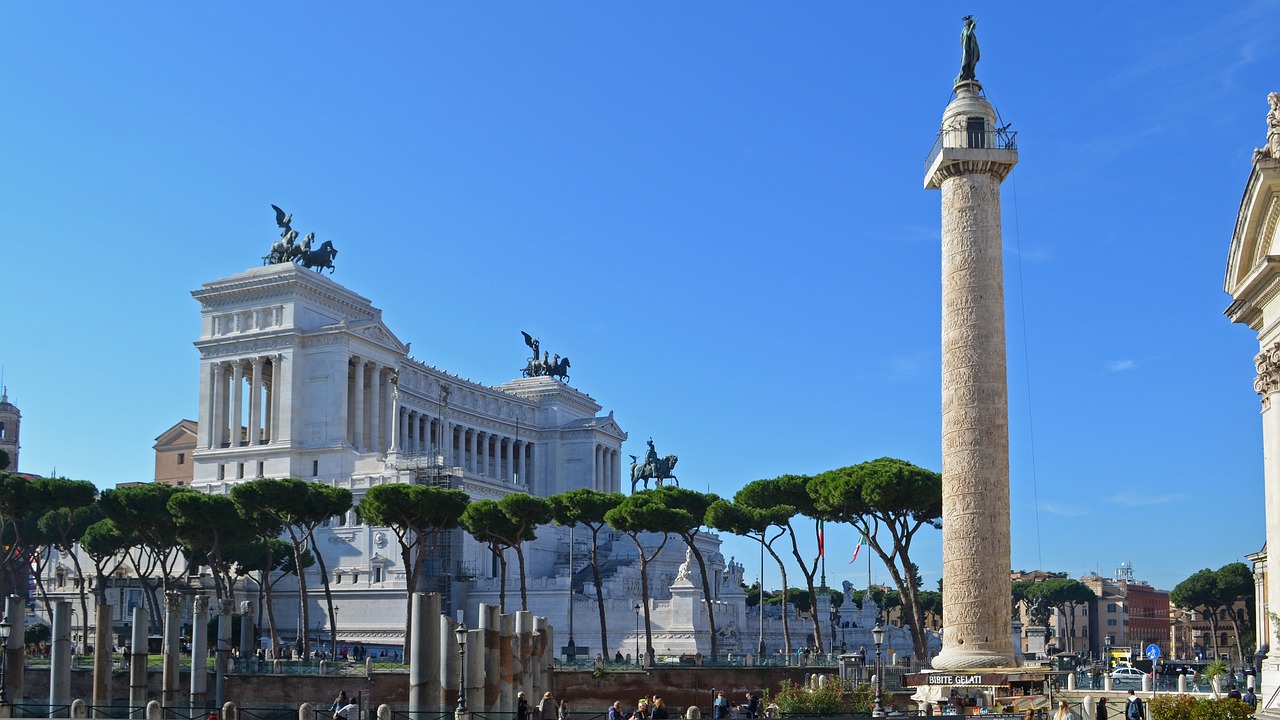
Architectural Marvels
When it comes to architectural marvels, the Roman Forum stands out as a testament to the ingenuity and grandeur of ancient Roman engineering and design. The Forum was adorned with iconic structures that not only showcased the architectural prowess of the Romans but also served important functions in the daily life of the city.
One of the most striking features of the Roman Forum is the Temple of Saturn, dedicated to the agricultural deity Saturn. This majestic temple with its impressive columns and intricate carvings was a symbol of prosperity and abundance in Roman society, reflecting the importance of agriculture in sustaining the empire.
Another notable structure in the Forum is the Basilica Julia, a massive civic building that served as a hub for legal and commercial activities. The Basilica's grandeur and spacious interior made it a bustling center of commerce and justice, where legal disputes were settled and business transactions were conducted.
The Arch of Septimius Severus is yet another architectural gem in the Roman Forum, commemorating the military victories of Emperor Septimius Severus and his sons. This triumphal arch, adorned with intricate reliefs and inscriptions, celebrated the military might of the Roman Empire and served as a reminder of Rome's dominance over its enemies.
These architectural marvels not only showcased the artistic and engineering skills of the Romans but also served as symbols of power and prestige in ancient Rome. The intricate designs, grandiose structures, and rich history behind each building in the Roman Forum continue to fascinate visitors and historians alike, offering a glimpse into the glory and splendor of the Roman Empire.

Political Center
Exploring the significance of the Roman Forum as a political, social, and economic hub in ancient Rome, shedding light on its role in governance, public life, religious ceremonies, and commercial activities.
The Roman Forum stood as the beating heart of political activity in ancient Rome, where the destiny of the empire was often shaped. This bustling square was not merely a physical space but a symbol of power and authority, where the voices of the people intertwined with the decrees of the ruling elite.
Imagine standing amidst the grand columns and structures, surrounded by the echoes of impassioned speeches delivered by revered figures like Julius Caesar and Cicero. Here, pivotal decisions were made, laws were debated, and elections were conducted, all against the backdrop of majestic temples and monuments.
The Forum was not just a place for governance but a stage for the drama of Roman politics, where the clash of ideas and ambitions reverberated through the marble pillars. It was a space where the pulse of the city could be felt, where the citizens gathered to witness history in the making and participate in the shaping of their society.
As the sun cast long shadows over the Forum, the power struggles and triumphs of Rome played out in full view, encapsulating the essence of Roman political life. The Forum was not just a physical space but a living, breathing entity that encapsulated the spirit of the empire and its enduring legacy.
1. What was the main function of the Roman Forum?
The Roman Forum served as a multifaceted hub, encompassing political, social, religious, and economic activities. It was the epicenter of Roman life, where governance, public life, commerce, and spiritual practices converged.
2. Why is the Roman Forum considered significant in ancient history?
The Roman Forum holds immense historical significance as a symbol of Roman power, architectural prowess, and societal complexity. It served as a reflection of the empire's grandeur and influence over its territories.
3. How has the Roman Forum influenced modern architecture and urban planning?
The architectural marvels and layout of the Roman Forum have inspired contemporary architects and urban planners, influencing the design of public spaces, government buildings, and city centers around the world.
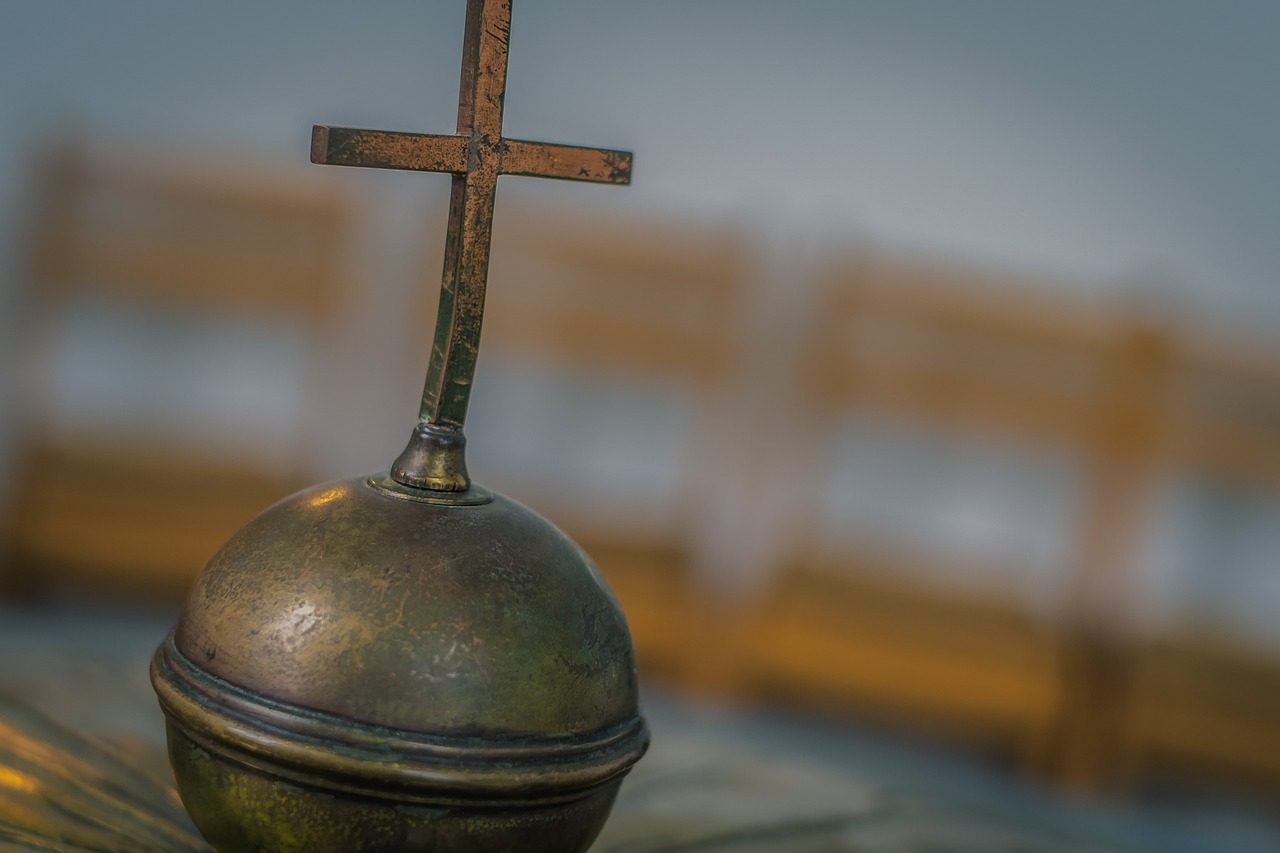
Religious Importance
When it comes to the of the Roman Forum, one cannot overlook the profound role it played in the spiritual life of ancient Romans. The Forum was not only a bustling center of political and social activities but also a sacred space dedicated to various gods and goddesses.
Walking through the Roman Forum, one would encounter majestic temples honoring deities such as Jupiter, Juno, Vesta, and Saturn. These temples stood as symbols of Roman piety and devotion, where rituals, sacrifices, and ceremonies were conducted to seek divine favor and protection for the city and its people.
One of the most renowned temples in the Roman Forum was the Temple of Saturn, dedicated to the god of agriculture and wealth. This temple housed the state treasury and was the site of lavish festivities during Saturnalia, a festival celebrating Saturn that involved feasting, gift-giving, and revelry.
The religious ceremonies held in the Roman Forum were not just acts of worship but also served as a means of reinforcing social cohesion and political authority. The participation of prominent figures in these rituals, such as magistrates and priests, underscored the close connection between religion and governance in ancient Rome.
Moreover, the presence of sacred statues, altars, and shrines in the Forum added a spiritual dimension to the bustling marketplace and political arena, reminding Romans of the divine forces that guided and protected their city.
In essence, the Roman Forum was not only a center of earthly power and social interaction but also a sacred precinct where the spiritual essence of Rome found expression through religious rites and observances.
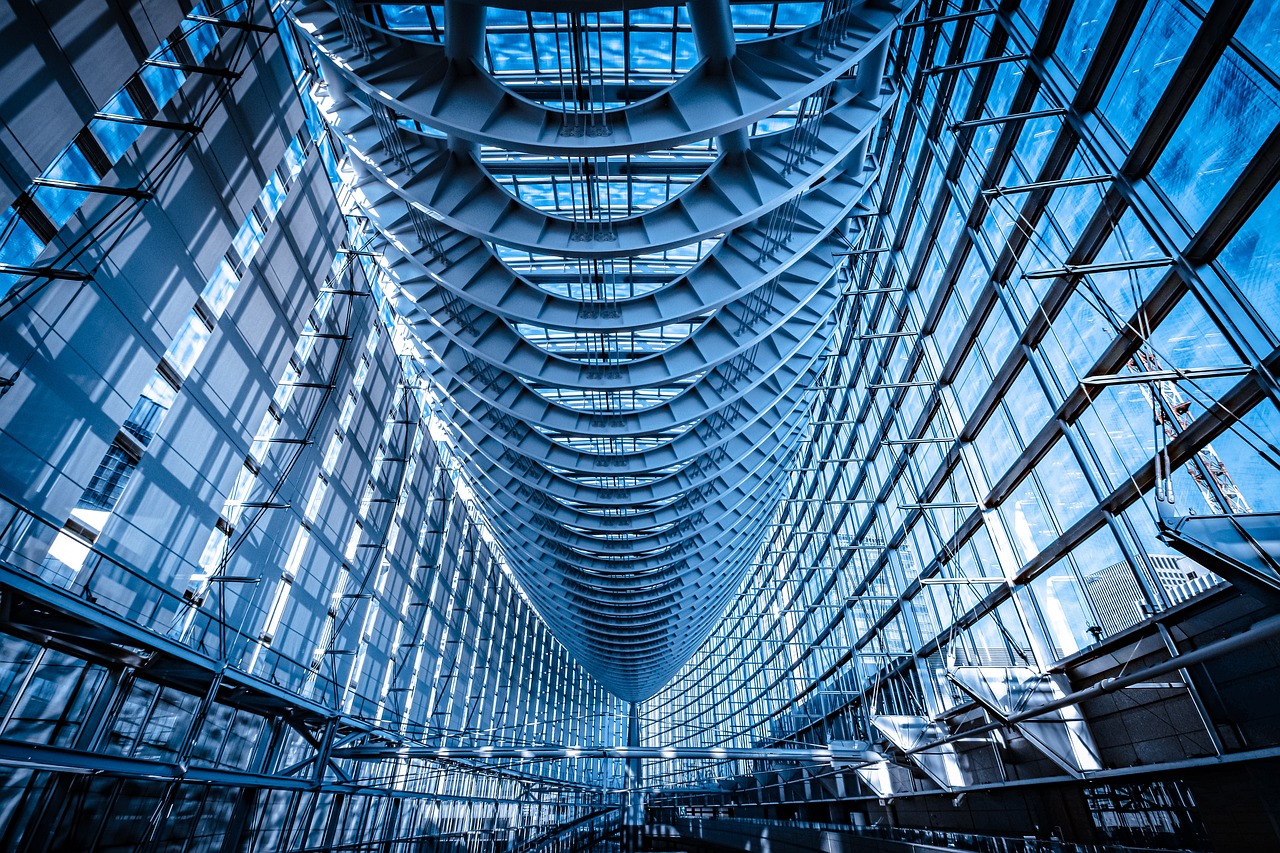
Social Gathering Place
The Roman Forum was not just a political and economic center but also a vibrant where the pulse of ancient Rome could truly be felt. Imagine a bustling marketplace teeming with activity, where the air is filled with the sounds of merchants haggling, performers entertaining the crowds, and citizens engaging in lively discussions. This was the Roman Forum, a melting pot of Roman society where people from all walks of life came together to socialize, exchange goods, and immerse themselves in the vibrant atmosphere of the city.
Picture yourself strolling through the ancient streets of the Forum, surrounded by grand temples, majestic basilicas, and impressive arches. The Forum was not just a physical space but a social nexus where friendships were forged, alliances were made, and ideas were shared. It was a place where the rich and powerful rubbed shoulders with the common folk, where social hierarchies blurred, and where the essence of Roman society was palpable in every corner.
As you navigate through the crowds in the Forum, you can almost feel the energy and excitement that permeated the air. Citizens gathered in clusters, engaging in animated conversations about politics, philosophy, and daily life. The Forum was not just a place for commerce and governance but a stage for social interactions, where relationships were cultivated, news was exchanged, and community bonds were strengthened.
Moreover, the Forum was a hub of cultural exchange, where ideas, beliefs, and traditions from across the vast Roman Empire converged. It was a place where diverse cultures intersected, creating a vibrant tapestry of customs and practices that enriched the social fabric of ancient Rome. Whether you were a patrician, a plebeian, or a foreign visitor, the Forum welcomed all with open arms, fostering a sense of inclusivity and camaraderie.
In essence, the Roman Forum was more than just a physical space—it was the beating heart of Roman society, a place where the collective spirit of the city found expression. As you stand amidst the ruins of this ancient marvel, you can't help but marvel at the enduring legacy of the Forum as a social gathering place that transcended boundaries and united people in a shared experience of community and connection.
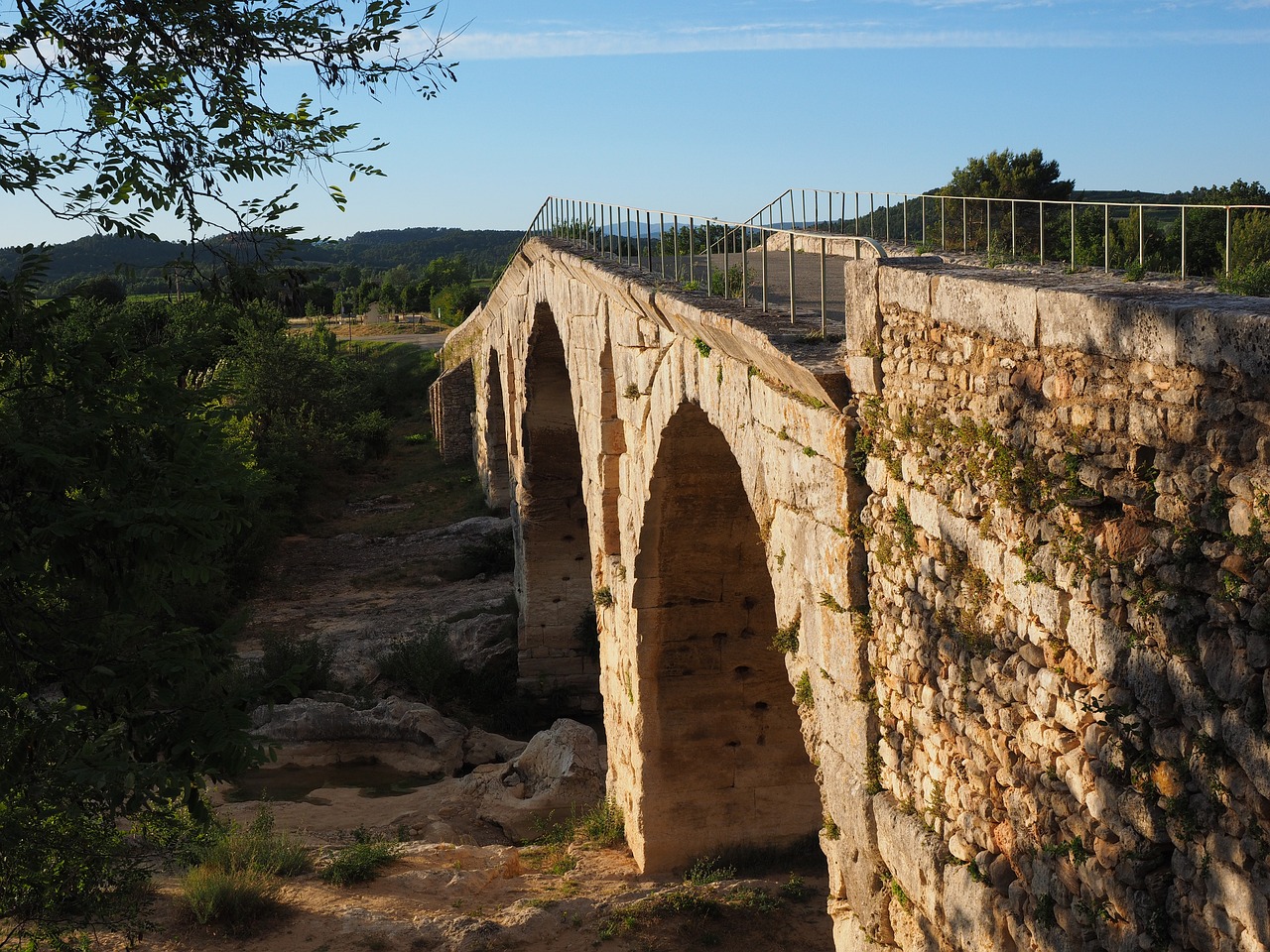
Economic Hub
The Roman Forum was not only a political and social center but also a bustling that played a vital role in the ancient Roman economy. This historic site was a vibrant marketplace where goods from all corners of the empire were traded, creating a lively atmosphere filled with merchants, buyers, and sellers.
Imagine the Forum as a bustling marketplace, with traders shouting prices, customers haggling for the best deals, and the constant flow of goods coming in and out. It was a place where commodities such as grains, spices, textiles, and even slaves were bought and sold, showcasing the economic prosperity of ancient Rome.
Moreover, the Forum was not just a place for buying and selling goods; it was also a center for financial transactions and commercial activities. Moneylenders, bankers, and businessmen gathered here to conduct business deals, loans, and investments, contributing to the economic growth and stability of the Roman Empire.
The economic activities in the Roman Forum were not limited to local trade but extended to international commerce as well. Traders from distant lands brought exotic goods to the Forum, enriching the cultural exchange and economic prosperity of Rome. This vibrant economic scene in the Forum symbolized the wealth and power of the Roman Empire, attracting merchants and entrepreneurs from far and wide.
Furthermore, the economic significance of the Roman Forum extended beyond mere transactions; it was a reflection of the empire's economic strength and influence. The wealth generated from the commercial activities in the Forum fueled the expansion of the empire, supporting military campaigns, infrastructure development, and the overall prosperity of Roman society.
In conclusion, the Roman Forum was not just a political and social hub but also a dynamic economic center that played a crucial role in the prosperity and growth of ancient Rome. Its bustling marketplace, financial activities, and international trade all contributed to the economic vibrancy of the Roman Empire, making it a symbol of wealth, power, and commercial success.
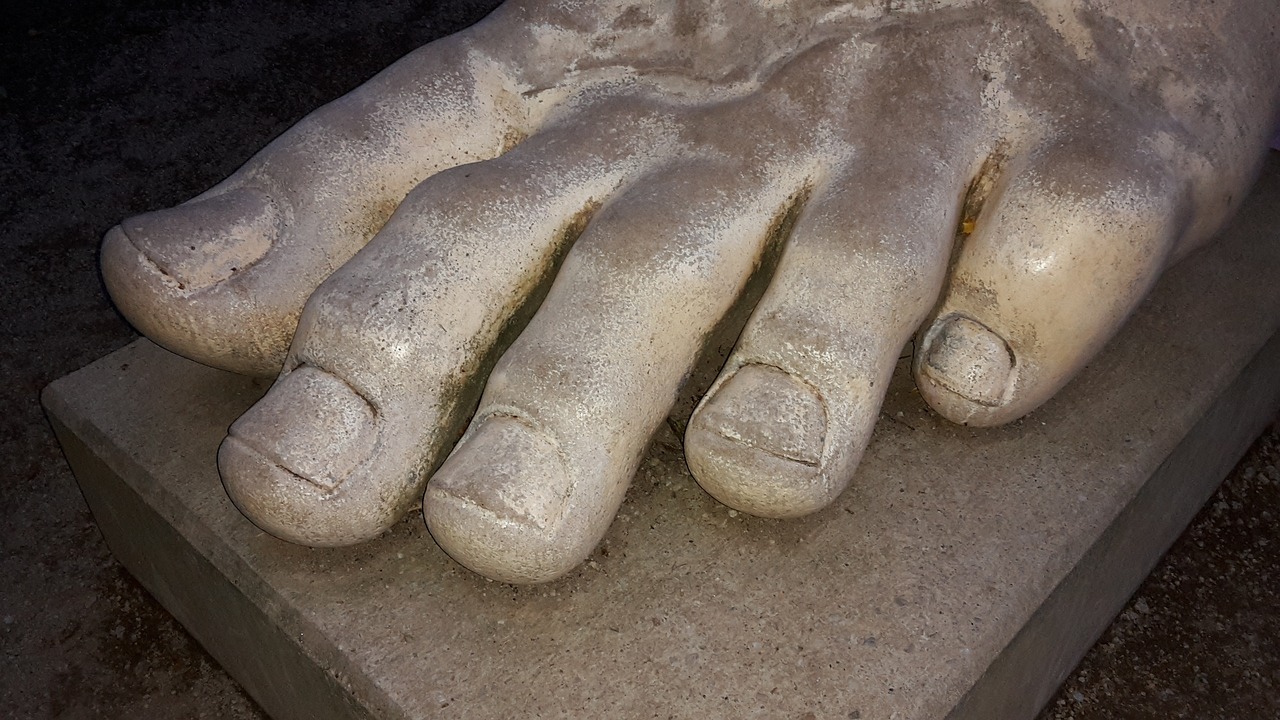
Symbol of Power
Exploring the significance of the Roman Forum as a political, social, and economic hub in ancient Rome, shedding light on its role in governance, public life, religious ceremonies, and commercial activities.
The Roman Forum stood as a majestic symbol of power, embodying the might and grandeur of the Roman Empire. Its towering structures and intricate architecture served as a visual testament to Rome's dominance and influence over its vast territories. Just as a lion's roar echoes through the jungle, the Roman Forum's presence reverberated across the ancient world, announcing Rome's strength and authority.
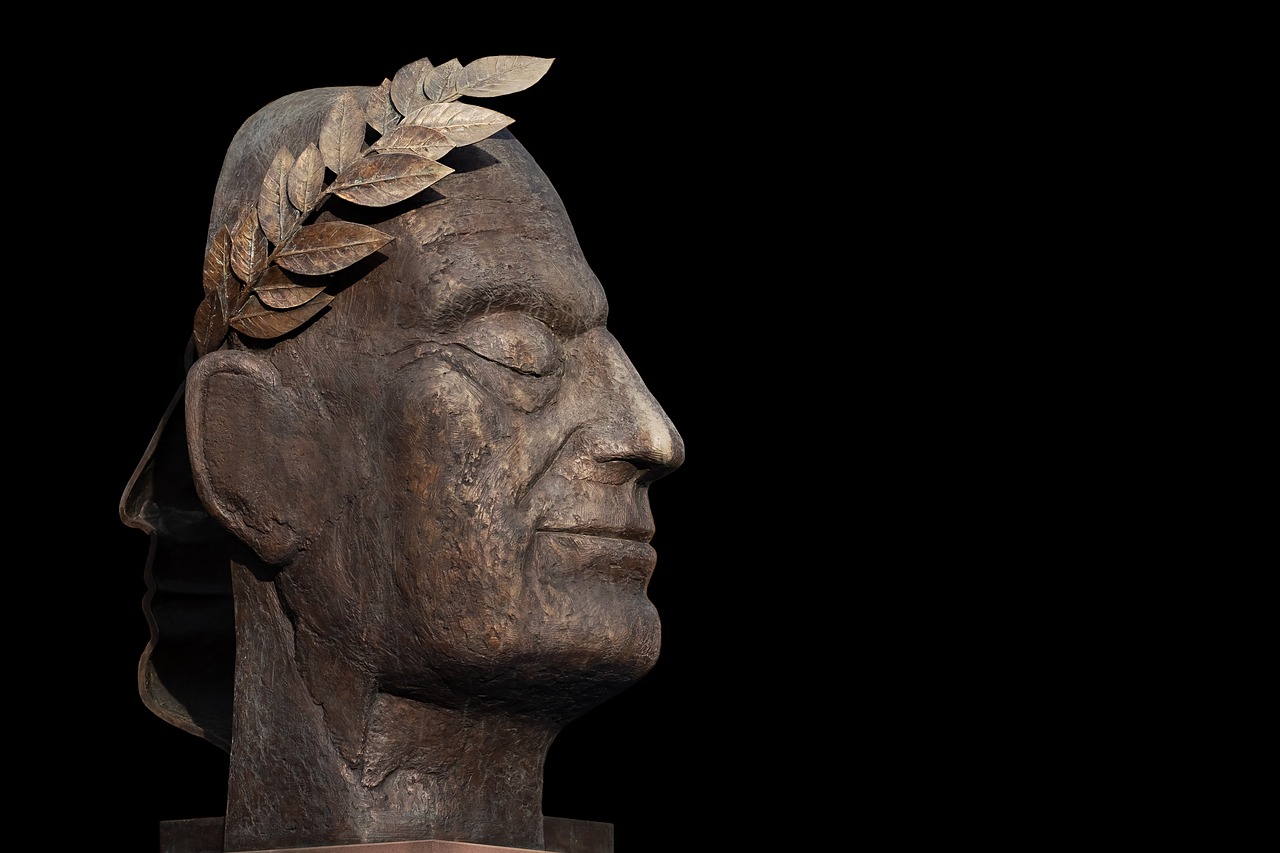
Legacy and Preservation
When it comes to the legacy and preservation of the Roman Forum, one cannot overlook its enduring impact on modern society. The significance of this ancient site transcends time, with efforts underway to safeguard its historical importance for future generations. The Roman Forum stands as a testament to the architectural and cultural achievements of ancient Rome, serving as a window into the past that continues to inspire awe and admiration.
Preservation initiatives aimed at maintaining the integrity of the Roman Forum have been instrumental in ensuring that this iconic landmark remains accessible to visitors from around the world. Through meticulous restoration work and conservation efforts, the splendor of the Forum's architectural marvels has been preserved, allowing visitors to experience the grandeur of ancient Rome firsthand.
Designated as a UNESCO World Heritage Site, the Roman Forum holds a special place in the hearts of historians, archaeologists, and enthusiasts of ancient civilizations. Its status as a protected site underscores the global significance of the Forum and the need to safeguard its legacy for future generations to appreciate and cherish.
As a symbol of Rome's rich history and cultural heritage, the Roman Forum serves as a living testament to the achievements of a bygone era. Its preservation not only honors the past but also serves as a reminder of the enduring legacy of one of the greatest civilizations in history. The Forum's legacy continues to resonate in contemporary architecture and urban planning, inspiring new generations to appreciate the timeless beauty and historical significance of this ancient site.
Frequently Asked Questions
- What is the Roman Forum?
The Roman Forum was a central hub in ancient Rome that served as a political, social, and economic center. It was a place where important decisions were made, public gatherings took place, and commercial activities thrived.
- Why is the Roman Forum important?
The Roman Forum is significant due to its historical, architectural, political, religious, social, and economic relevance. It symbolized the power of the Roman Empire and continues to be a symbol of ancient Roman civilization.
- What were some notable structures in the Roman Forum?
Iconic structures in the Roman Forum include the Temple of Saturn, the Basilica Julia, and the Arch of Septimius Severus. These architectural marvels showcase the engineering and design prowess of ancient Rome.
- How did the Roman Forum influence daily life?
The Roman Forum influenced daily life by being a place for social gatherings, political discussions, religious ceremonies, and economic transactions. It was a bustling center where Romans from all walks of life converged.
- Is the Roman Forum still preserved today?
Efforts have been made to preserve and protect the Roman Forum as a UNESCO World Heritage Site. It continues to influence modern architecture and urban planning, serving as a reminder of Rome's rich history.











